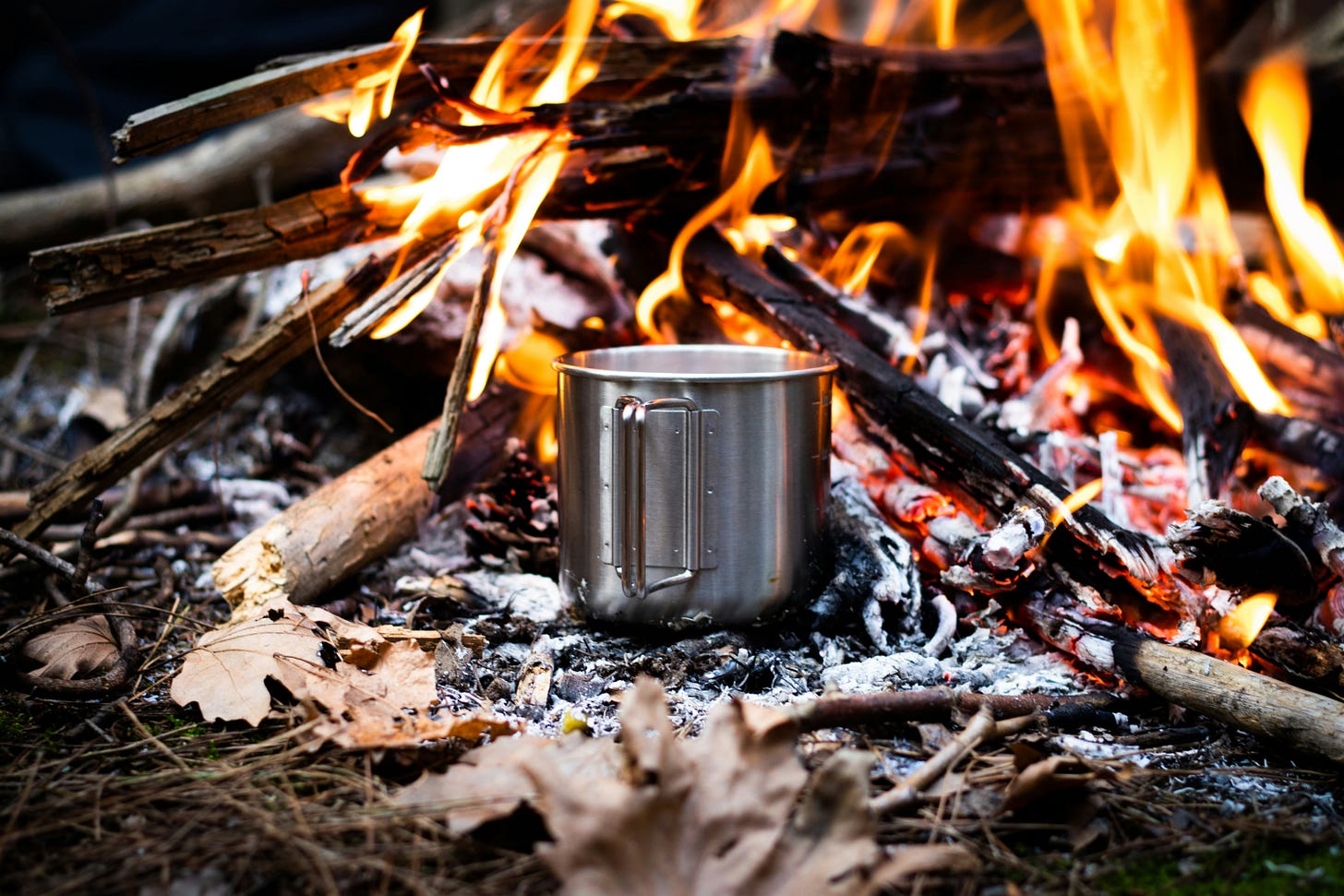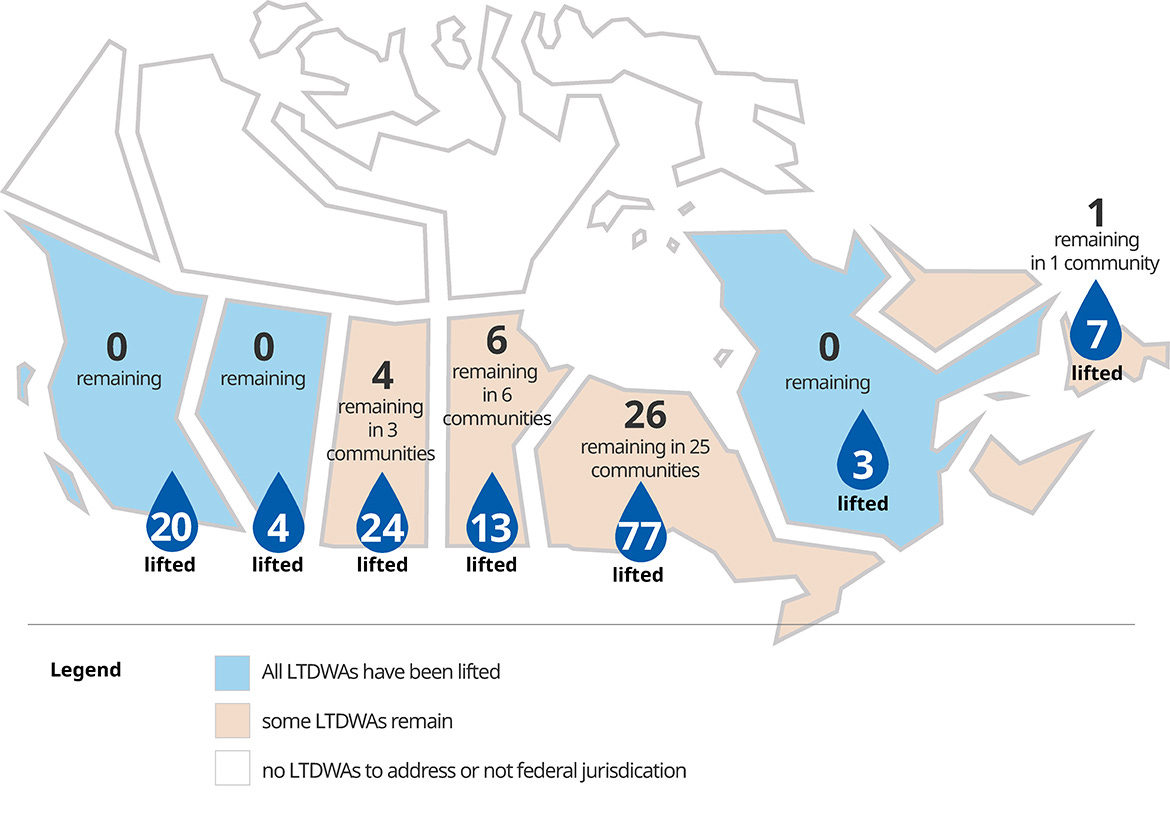Why Indigenous Communities in Canada Still Face Boil Water Advisories and What Keeps It That Way
How Decades of Systemic Racism Keep 37 Communities Without Safe Drinking Water
Photo by Kemal Berkay Dogan on Unsplash
Before we go on, can you do me a favor and share this post with other creators and businesses who might benefit from it? It would mean a lot to me. Thanks!
Do you ever grumble when your city sends a boil water notice that lasts a day or two? Most of us treat it like a mild annoyance - something to complain about over coffee.
Now picture this: as of May 2025, 37 long-term advisories are still in effect on First Nations reserves across Canada - some running for more than a decade. Imagine boiling every cup you drink, every pot you cook, every bath your kids take - not for a few days, but for years.
This isn't a freak accident, a forgotten corner, or some distant tragedy. It's the outcome of policies built to fail, systems designed to look caring while delivering neglect. In this piece, we'll unpack the scope of the crisis, why it's lasted so long, and why systemic racism, not mere bureaucracy, keeps taps dry in communities that should have had safe water generations ago.
Who Is Affected and How Many Lives Are on the Line
The numbers hit differently when you realize they represent real kitchens, real families, real kids.
As of May 2025, 37 long-term drinking water advisories remain active on First Nations reserves across Canada. Add the short-term advisories - 45 as of July 2025 - and you're looking at 82 communities where turning on the tap means rolling the dice with your health.
Ontario leads with the most advisories, followed by Manitoba and Alberta. But here's what stings: some of these advisories have been in place for over a decade.
A decade.
Kids have grown up never knowing what it feels like to trust their tap water.
Through my daughters' journey of discovering their Indigenous heritage, I've heard stories that make these statistics personal. Elders who remember when the water was clean. Mothers who've spent more on bottled water than groceries. Teenagers who think boiling water is normal because they've never known anything else.
The scope in numbers:
37 long-term advisories affecting thousands
Ontario and Manitoba hardest hit
Some advisories lasting 10+ years
High-risk systems running without upgrades
No parallel in non-Indigenous communities of similar size
The silence? That’s what cuts deepest. If 37 Toronto suburbs lost safe water for a decade, it’d be a national crisis. But on reserves? Another file gathering dust.
The human toll numbers can’t show
A boil water advisory feels minor until you live with it. Families on reserves don’t just drink bottled water - they bathe babies in it, cook every meal with it. Some skip showers when bottles run dry. Kids wonder why their teeth hurt or bellies ache, never linking it to water.
From what I hear through my daughters, who sit with Mi’kmaq elders, the damage goes beyond the kitchen sink:
Children miss school due to stomach illness
Families spend hundreds a month on bottled water
Anxiety over whether the water burns skin today
Cultural gatherings rely on bottles, eroding tradition
Parents carry quiet guilt, boiling water that their kids should never see
When water itself feels dangerous, trust in leaders, systems, and tomorrow erodes. The mental cost? Brutal.
Think about it: kids born under advisories now grow up without ever tasting clean tap water at home. My daughters live in a world where water flows clean without thought. Other kids their age see boiling water as a daily routine.
Generational water insecurity leaves scars deeper than illness. It’s the trauma of knowing your family’s health is negotiable.
How did we get here, and why was it never an accident
This crisis stays because we built it that way.
The Indian Act barred First Nations communities from owning their water systems. Fixes require Ottawa’s sign-off. The Safe Drinking Water for First Nations Act sounds good—until you read the fine print: standards with no money to meet them. Accountability with no power to act.
When communities demand better, they get studies and consultations - stall tactics that keep pots on stoves. Big contractors cash in on failure, collecting millions for systems that don’t last. Meanwhile, local communities are told they’re “unqualified” to fix their water.
It’s like renting a broken car, then getting blamed when it won’t start.
The jurisdiction shell game worsens it. Ottawa says it’s provincial; provinces say it’s federal. Everyone blames someone else, while families buy water they can’t afford.
This isn’t incompetence. Its design. The system keeps communities dependent and underfunded, right where policy meant them to stay.
Systemic racism keeps the crisis alive
Call it what it is - systemic racism. Not open slurs, but policies that grind hope down over decades.
It means patch-up funding, never prevention. Water systems condemned elsewhere are “acceptable” on reserves. Delays that wouldn’t happen in Vancouver become routine.
Numbers say it clearly: in 2018, 8.7% of Indigenous households off-reserve reported undrinkable tap water for over a week, triple the national average. On-reserve numbers? Worse, but harder to track.
How it shows up:
Overcomplicated funding routes through multiple departments
Years of delay while kids keep getting sick
Lack of Indigenous-led water governance
Short-term bandages, never long-term repair
Paternalistic oversight, treating communities like kids, unfit to run their systems
As a father, it stings knowing my kids turn taps without fear while others never had that trust. It’s not about location or cost. It’s about whose lives matter.
Since 2015, Canada has spent $2.5 billion on water infrastructure, spread thin over hundreds of communities over nearly a decade. Meanwhile, billions drop on single pipelines or highways.
When Indigenous communities propose training local operators or running community-owned systems, Ottawa calls it “too complicated.” But keeping a broken system running for decades? That, somehow, is manageable.
The message: we’ll keep you alive, but we won’t let you thrive.
What readers need to remember before clicking away
This isn’t a remote crisis. It’s a national emergency rooted in policy and sustained by systemic racism.
The privilege to forget fuels the problem. Most Canadians trust the tap because they always could. That blindness keeps tens of thousands living in what should be unthinkable.
What you can do:
Follow and boost Indigenous-led advocacy
Pressure your MP for real funding and legislation
Share data, not just hashtags
Talk about systemic racism, even when it stings
Through my daughters’ journey of discovering I realized that clean water isn’t charity; it’s overdue justice.
The crisis stays because we let it. The fix comes when we demand it.
“Dope Copy for Dope Folks”
If you want to learn more, click below:
Thanks for Tuning In
Buy Me A Coffee |Gumroad| Medium




